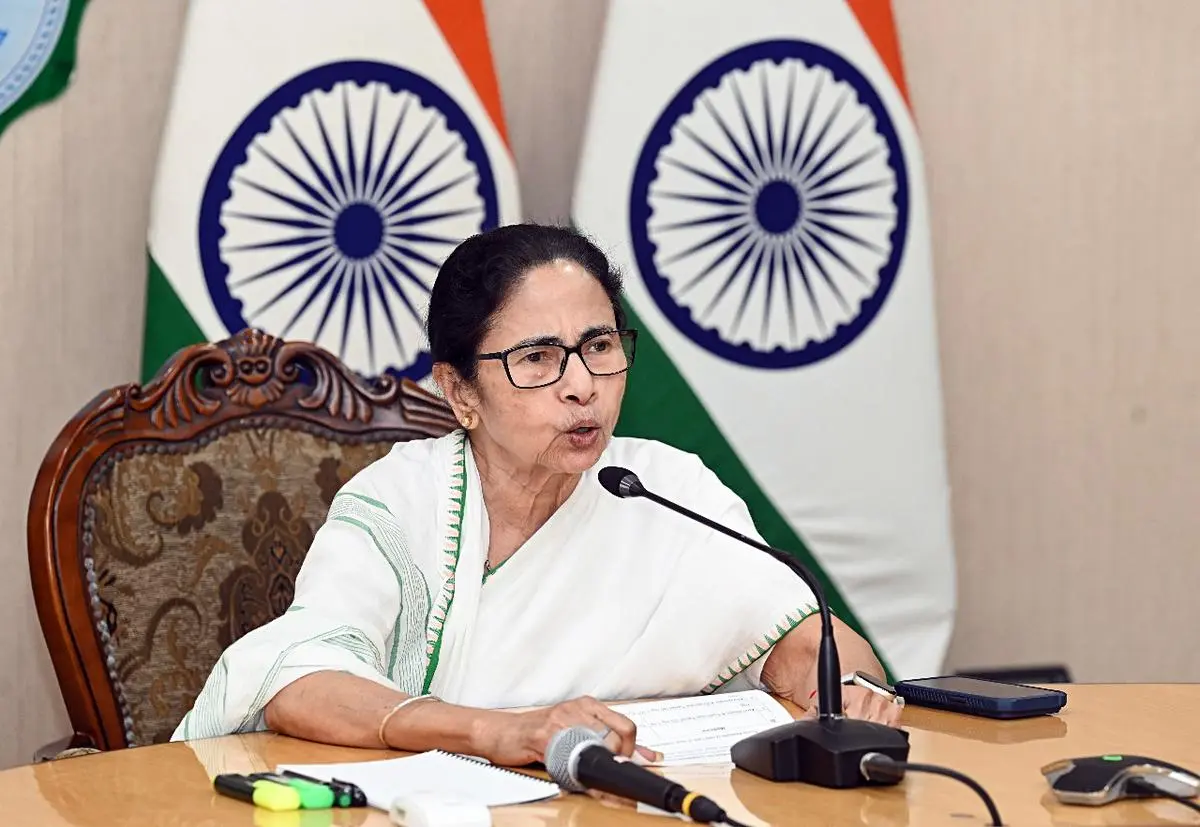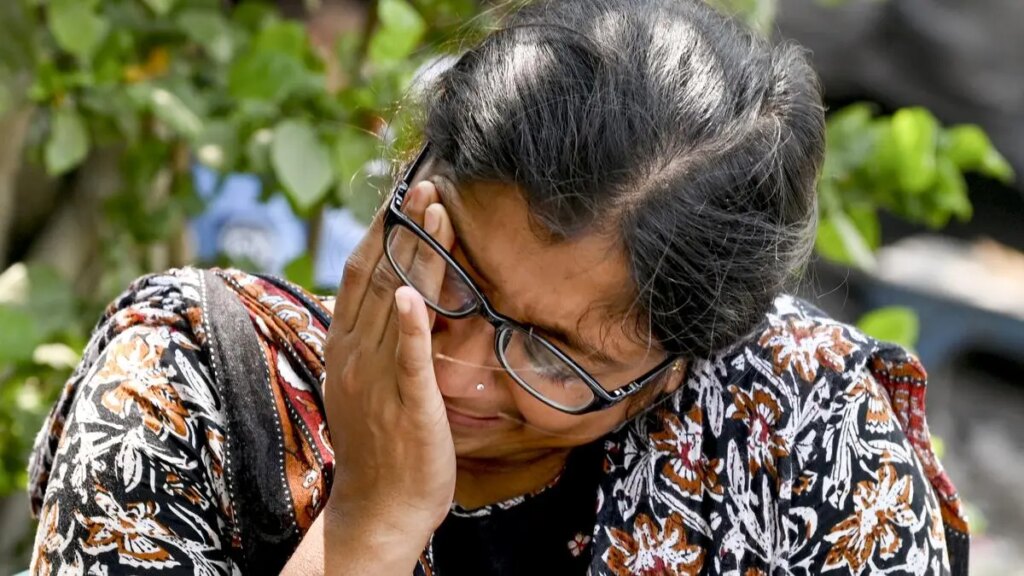The ruling Trinamool Congress of West Bengal received yet another blow to its battered reputation when the Supreme Court, on April 3, upheld an earlier verdict of the Calcutta High Court and invalidated 25,752 appointments of teaching and non-teaching staff. These appointments had been made by a recruitment panel set up by the West Bengal School Service Commission (WBSSC) in 2016.
The court claimed that the entire selection process was “vitiated and tainted beyond resolution”. The timing could not be worse for Trinamool supremo and West Bengal Chief Minister Mamata Banerjee, who has started preparations for the 2026 Assembly election amidst several allegations of corruption and mismanagement in governance.
The SSC scam has been one of the State’s biggest in recent times, which saw the arrest of several prominent politicians such as heavyweight Minister Partha Chatterjee and influential Trinamool MLA Manik Bhattacharya. Top government officials including Shanti Prasad Sinha, former Adviser to the WBSSC; Ashok Kumar Saha, former Secretary of the WBSSC; Kalyanmoy Ganguly, former President of the West Bengal Board of Secondary Education; Subiresh Bhattacharya, former WBSSC Chairperson and Vice Chancellor of North Bengal University; and Prasanna Roy, a middleman known to be close to Partha Chatterjee, were among the bureaucrats arrested.
Also Read | Mamata Banerjee’s corruption crackdown: Calculated move or genuine reform?
The Supreme Court bench, comprising Chief Justice of India Sanjiv Khanna and Justice Sanjay Kumar, heard petitions challenging the Calcutta High Court order of 2024, in which the appointments made by the SSC for classes IX-XII in 2016 were cancelled en bloc in connection with the recruitment scam. Upholding the High Court judgment, Khanna said, “Manipulation and fraud on a large scale, coupled with the intention to cover up, have tainted the selection process beyond repair. The legitimacy and credibility of the selection process are denuded.”
Tainted vs untainted
The judgment stated that the services of tainted candidates who were appointed “must be terminated, and they should be required to refund any salaries/payments received. As their appointments were the result of fraud, this amounts to cheating…” Candidates who are not “tainted”, need not refund or restitute any payments made to them. “However, their services will be terminated”, the order said.
In the cases of those appointed candidates who are not “tainted”, and may have previously worked in different departments of the State government or with autonomous bodies, their appointments would remain cancelled, but they may, nevertheless, apply to their previous departments or autonomous bodies to continue in service with those entities.
Coming down heavily on the State government for trying to “cover up” the irregularities in recruitment by destroying the optical mark recognition (OMR) answer sheets, and not keeping a backup, the judgment said: “The contradictory stance of WBSSC on the possession and destruction of scanned/mirror copies of the OMR sheets reflect an attempt to cover up illegalities and lapses in the selection process.”
The judgment pointed out that the WBSSC did not upload the marks of candidates while uploading the list of the candidates called for interview or included in the panel/waitlist. “Marks were only displayed after the High Court vide order dated 12.05.2022 in WPA 8059 of 2022 mandated the disclosure of marks for each empanelled candidate. This omission appears deliberate, likely intended to conceal the marks of candidates on the waitlist, raising concerns about potential data manipulation. It is also a known fact that some candidates who did not attempt a single question were awarded marks and issued appointment letters,” the judgement stated.
Affected teaching candidates in a sit-in demonstration near Matangini Hazra statue near Kolkata’s Maidan in June 2024. The fate of over 32,000 more candidates for primary schools (from the Teachers Eligibility Test, or TET, of 2014 and 2017) is also hanging in the balance.
| Photo Credit:
DEBASISH BHADURI
The judgment has plunged the State into despair as thousands of teachers, who had got their jobs legitimately, suddenly find themselves out of work. Although they are eligible to appear for a fresh selection process, there is no guarantee that they will succeed again. There is also indignation about being punished for a crime they did not commit.
Krishnamrittika Nath was a topper in her college and had even been awarded a gold medal by the Governor of West Bengal. Breaking down in front of the media, after receiving news of her dismissal, she said: “I secured a first class first. Even after that if I have to prove whether I am tainted or not, I have nothing to say… I am an only child and my elderly parents are dependent on me. I do not know what to do.” Many feel the judgment to be unnecessarily harsh on the innocent, and many hold the state government responsible for their plight.
‘Inherent contradiction’
Some legal experts have also indicated an “inherent contradiction” in the judgment, particularly with respect to the cancellation of all the candidates irrespective of whether they were guilty or not. Debanjan Mandal, the managing partner at Fox & Mandal, one of the top solicitors’ firms in the country, told Frontline: “On reading the judgment, it appears that there may be an inherent contradiction in it. On the one hand, the Hon’ble judges have said that the tainted should return their salary, and the untainted need not. Therefore making a distinction, by which the tainted can be segregated from the untainted.”
“Honest teachers are today losing respectability because of a few bad eggs. Can the government repair the damage that has already been done?”Surajit C. MukhopadhyayEminent sociologist and writer
The judgment had also made note of the SSC admitting that 1,498 out-of-panel candidates were illegally appointed; 926 candidates were involved in rank jumping; and 4,091 candidates were recommended despite OMR mismatches. “Thus, excluding 239 candidates who fall under both OMR mismatch and other illegalities, WBSSC acknowledges that 6,276 illegal appointments were made,” the judgment stated. However, it also pointed out that “for candidates not specifically found to be tainted, the entire selection process has been rightly declared null and void due to the egregious violations and illegalities, which violated Articles 14 and 16 of the Constitution”.
It also said that the “cover up” by the SSC had “made the verification and ascertainment more difficult or rather impossible, given the scale of camouflage and dressing up done at each stage. We are convinced that the entire selection process was intentionally compromised due to the illegalities involved.” A senior legal expert, who did not wish to be named stated: “It is like cutting off the head to get rid of the headache.”
Pressure on school educational system
The sudden dismissal of nearly 26,000 teachers and non-teaching staff has created enormous pressure on the school educational system. A government source said: “Classes IX-XII are crucial years for students, and government schools are understaffed. The pressure on the remaining teachers will become huge.” The SSC is reportedly thinking of moving the Supreme Court, seeking permission for the dismissed staff to continue until fresh recruitments are made.
Meanwhile, the judgment has sparked a political war, with each party levelling charges at the other, as the Assembly election approaches. Both the BJP and the Left have demanded the resignation of the Chief Minister; on the other hand, Mamata listed instances of corruption and misrule in BJP-ruled States. “This situation was created by the BJP and the CPI(M), and they will receive their reply in the coming days,” she said.

West Bengal Chief Minister Mamata Banerjee. Mamata, while expressing “the highest respect” for the judiciary, said she could not “accept the judgment on humanitarian grounds”.
| Photo Credit:
UTPAL SARKAR/ANI
She even attacked the Left for taking the matter to the court. She said: “Who was the one who moved the case? Bikash babu [CPI(M) leader and eminent lawyer Bikash Ranjan Bhattacharya]… After so many people lost their jobs, BJP minister Sukanta babu [Sukanta Chowdhury, Union Minister and State BJP president] said that because of the tainted candidates, the untainted ones lost their jobs, and that I am responsible… When you began the case did you not think for once who is deserving and who is not? Why is Bengal always being targeted? What crime has its youth committed?”
Mamata, while expressing “the highest respect” for the judiciary, said she could not “accept the judgment on humanitarian grounds”. She vowed to stand by those who had lost their jobs, and claimed she had no knowledge of those the court had labelled “tainted”. A combative Mamata alleged that the country’s ruling party was trying to destroy West Bengal’s educational system. “It is a concerted attempt to keep Bengal down,” she said.
Possible electoral impact
While some political observers feel that, electorally, the impact of the judgment may go either way for the contesting parties, some feel that it is the Trinamool that may be hit the hardest. The well-known academic and political observer Subhamoy Maitra feels that it is still too early to gauge how the public will react to the situation. “The people will have to ask themselves one question: Who is ultimately responsible for this loss of jobs and educational crisis? Is it the State government? Or is it the Opposition who brought the issue to the fore by going to court? Whichever party can best convince the masses, will be one that gains,” he said.
The veteran election analyst Biswajit Bhattacharya explained why it is the ruling party that is most likely to be adversely affected. With the fate of over 32,000 more candidates for primary schools (from the Teachers Eligibility Test, or TET, of 2014 and 2017) also hanging in the balance, a similar verdict from the Supreme Court, where the cases are pending, will add to the woes of the State government. “In an industry-starved State like West Bengal, where there is a severe lack of employment, a job in a government school has been one of the most sought-after options. If the Supreme Court rules in a similar manner for the TET candidates of 2014 and 2017, then we will have more than 58,000 teachers rendered jobless because of government corruption. This may very well hurt the ruling party,” Bhattacharya told Frontline.
Also Read | Centre versus West Bengal: Can Mamata Banerjee stay defiant?
He recalled a similar situation in Tripura where a Supreme Court ruling had cancelled the jobs of 10,000 teachers in 2017, which in turn had played a big role in the defeat of the 20-year-old CPI(M) government in 2018. “The SSC scam has once again taken centre stage and appears to have elbowed out, albeit for the time being, the toxic communal politics that has been dominating the State politics in the run-up to the Assembly polls,” said Bhattacharya.
More than the crisis in the educational sector, the scam has precipitated a far deeper social crisis. The eminent sociologist and writer Surajit C. Mukhopadhyay told Frontline: “Corruption denudes the confidence of the citizen in the system. With each corruption being unearthed, the system is being found to be faulty, which robs the system of legitimacy. I feel the Supreme Court judgment is an attempt to repair the legitimacy of the system. The manner in which this corruption had taken place, involving a powerful Minister and top government officials—people who are sworn to uphold the Constitution—it ceases being a petty criminal offence, but a massive anti-constitutional crime.”
“Honest teachers are today losing respectability because of a few bad eggs. Can the government repair the damage that has already been done? That is the main question now,” said Mukhopadhyay.
Source:https://frontline.thehindu.com/the-nation/education/west-bengal-ssc-recruitment-scam-supreme-court-judgment-mamata-trinamool-corruption/article69416337.ece

